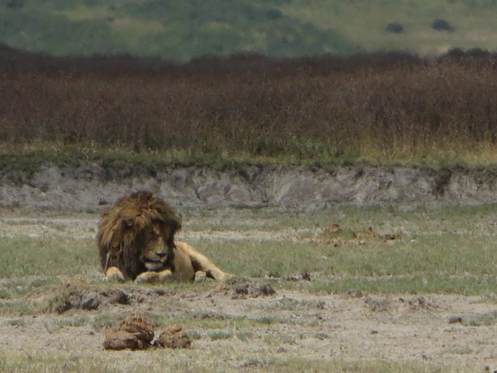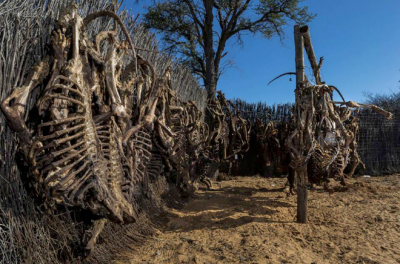|
*Warning: this blog post contains images that some readers may find disturbing. Lions represent an essential part of the African landscape. As an apex predator, they help maintain healthy ecosystems by keeping prey numbers in check and removing diseased or weak individuals from prey populations, thus improving the overall health of these species. Lions are also of vital economic importance. As a member of the Big Five and a must-see on most tourists’ wishlists, lions and other iconic species are fundamental to South Africa’s tourism success. The total contribution of travel and tourism to the gross domestic product (GDP) of South Africa was R 402bn (9.3% of GDP) in 2016. The travel and tourism sector accounted for 1.5 million jobs or 9.8% of total employment in 2016. In June 2017, South Africa announced the legalised export of 800 skeletons (with or without skulls) from captive bred lions to Asia a year, sparking controversy from conservationists and safari operators who suggest that this decision may threaten lions and jeopardise the tourism industry. Similar to rhino horn, the demand for lion bones is stimulated by traditional medicinal uses in Asian countries. Unlike many other species in traditional Asian medicine, the use of lion bones is a relatively new trend that only became public knowledge about a decade ago. Powdered tiger bones have been used as ingredients in wine for at least 1000 years. Tiger bone wine and cake is believed to have aphrodisiac qualities and cure malaria, arthritis, other bone ailments and rheumatic conditions. No scientific merit has been associated with these claims. Following a steep decline in wild tiger populations, the species received greater protection measures, including a ban on all trade and stricter law enforcement. This provoked the use of bones from other big cats as viable substitutes, including lions, leopards, snow leopards and clouded leopards, with lion bone being the most popular due to their physiological similarities to tigers and the relative ease in accessing bones from South Africa. South Africa is the largest exporter of lion parts to China, Laos PDR and Viet Nam, with bones originating as by-products of the canned hunting industry. In South Africa, between 6000 and 8000 lions and 280 tigers are kept in captivity. Lions are primarily farmed for canned hunting (animals are bred and raised in captivity to be released into the ‘wild’ a short time before a hunt is planned). Paying hunters often keep the skins and sometimes the skulls as trophies. The bones, previously discarded, have now become a source of commercial income and are legal to trade internationally up to a certain quantity with the correct permits. It is probable that tiger bones and lion bones are passed off as one another depending on the sellers availability at that time. Wild lion numbers have declined by 43% in past two decades to an estimated 20000 lions in Africa today. This decline is largely associated with habitat loss but conservationists and leading tourism operators fear that legalised trade in captive lion bones may stimulate further declines in wild populations and discredit South Africa’s reputation as a photo-safari destination. Limited trade in lion body parts bred in captivity is legal but trade in body parts from wild lions is not permitted. Permitting some trade in animal parts can fuel market demand which may lead to poaching of wild lions and tigers, especially since wild animals are preferred over captive felids in traditional medicine. Examples of illegal poaching for lion bone have already been recorded. In early July 2017 three lions were poisoned with Temic laced baits in Limpopo National Park, Mozambique for the lion bone trade.
For more information about the lion bone trade, we recommend the following reports:
5 Comments
20/9/2017 21:02:57
The Asians are still so steeped in their superstitions about medicine that I doubt they will ever be enlightened about modern medicine.
Reply
Beat About the Bush
21/9/2017 08:04:41
Thanks for the comment. Traditional beliefs are challenging to replace even in the light of scientific evidence. I certainly agree that the more information available, the more likely we are to protect these animals. African traditional medicine also uses plant and animal parts, but the demand is somewhat lower. I might discuss this in an upcoming blog post.
Reply
Leave a Reply. |
AuthorTrevor Carnaby Archives
March 2018
Categories
All
|



 RSS Feed
RSS Feed
